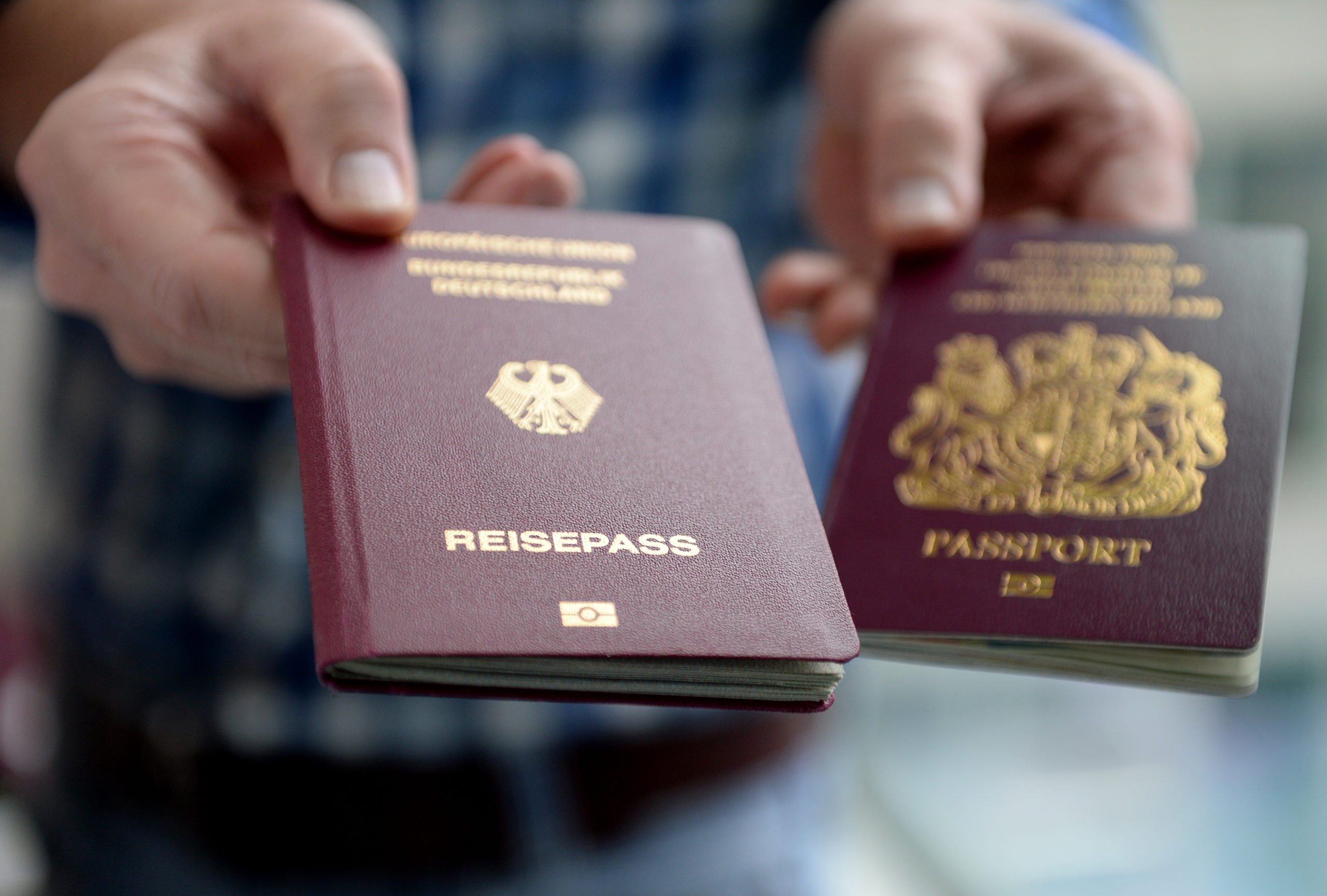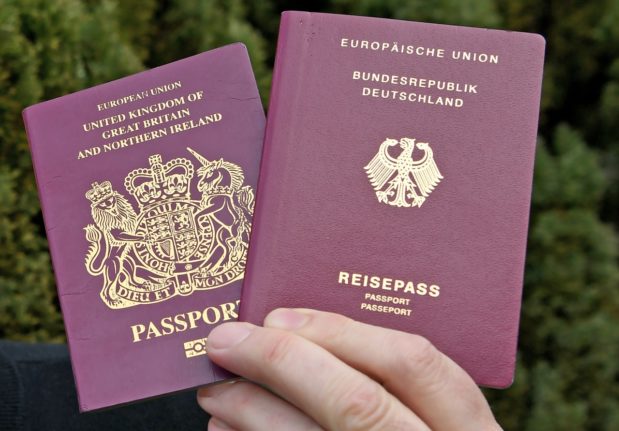Parliamentary democracy with a pre-agreed, binding coalition contract is a great thing. Parties aren’t just elected for the vibes – in theory, you know exactly what will get done in any given legislative period. In practice, timelines remain murky and life often throws political curveballs, which delay the agenda, causing uncertainty and frustration. So it is with the keenly awaited liberalisation of dual citizenship in Germany.
While the government fields crises and works through its own top priorities, many immigrants continue to put aspects of their lives on hold until the day they can finally acquire a German passport and become fully enfranchised.
The coalition pact – made up of the SPD, Greens and FDP – detailed plans to lower the residency requirement from eight to five years (or even three in some cases) as well as permit non-EU nationals to hold multiple citizenships.
While representatives of Germany’s ruling traffic light coalition previously assured us that the reform would be a priority, and indeed come in this legislative period, the question of exactly when remains up in the air.
Writing on behalf of press spokesperson Sascha Lawrenz, a staffer of the Federal Ministry of the Interior and for Community reiterated that the coalition contract included plans for a modernisation of nationality law, including enabling multinationality and simplifying the naturalisation process.
“At this time, it is not possible to predict how much time the lawmaking process will take,” the spokesperson told The Local.
READ ALSO: When will Germany relax dual citizenship laws?
The longer it takes for reform, the more impact on lives
Perhaps a frustrating answer for the many who are desperate to know when things will get moving.
Professional soprano Kirstin Sharpin, who holds joint citizenship from the United Kingdom and New Zealand, will be eligible to apply for German naturalisation later in 2022, but is waiting until progress occurs on the proposed reform.
“Applying immediately would mean opening a huge can of worms and huge legal fees in an attempt to retain my current citizenships, both of which are vital to my work,” said the singer. “The longer it takes for reform to happen, the more impact this will have on my professional and personal lives.”
US citizen Scott Fountain has also dealt with tangible disadvantages under the current law. “I had problems with my investments here through Consors because I am American,” he said. His status as a solely foreign national forced him to divest in previously held funds and stocks. “I have been interested in German citizenship for a long time,” emphasised Fountain, who came to Germany in 1972 with the US army, was married to a German national and has children here. “But I do not really want to give up my American passport, so I am waiting to see what develops.”
Anna, who is also from the US, faces even more pressing concerns. She has spent about a decade in Germany “on one student visa after the other”. Now she holds a doctorate and a job-seeking visa which expires at the end of March. “Although I would have been able to apply for German citizenship by now, I haven’t, because of the ban on double citizenship,” said Anna. She now has employment and has applied for a skilled workers’ visa, but harbours doubts due to the job field and priority rules granting primacy to qualified EU candidates.

If her application fails, she would need to marry her boyfriend last-minute—or “quit my job, my apartment, my life, and leave immediately. After 10-plus years and a PhD,” said Anna. “Assuming it does all work out with the employment visa, I would still be forced to go back to the Ausländerbehörde (immigration office) every year, since at our organisation our work is financed on a yearly project-basis with EU funds.” Naturalisation would remove those worries, give her planning security and allow her to vote in Germany, “which is really important to me since I am politically active,” she said.
‘I will not give up my American citizenship’
A third US citizen, speaking on condition of anonymity due to sensitive ongoing talks with their employer, continues to lose professional opportunities, workplace flexibility and potential revenue as long as dual nationality remains out of reach. The source has been in Germany since the mid 90s, was married to a German national and is now divorced with two German-American children. “So I’ve been eligible for… ever,” they said wryly. “But I’ve always held off because I will not give up my American citizenship.”
They expressed the standard desire, given their longstanding taxpaying and integrated status, to be able to vote in Germany – and to benefit from new options of remote work. “As an American citizen, I can’t take advantage of any of the remote work rules in my company,” they related. Due to corporate policy, tax and insurance regulations, they also currently aren’t allowed to work abroad even for a few days bookending a vacation when they do happen to be stateside. “As soon as these rules officially change, I will stand in line for days to be able to get the double citizenship,” they said.
German citizen Anne Macauley and her husband and sons, who hold Sierra Leonean passports, are also hoping for a speedy implementation of the planned reform. “I think for [them] the benefit to get the German citizenship is still higher than waiting for the law to be changed. However, it would still be great if they all could also have dual citizenship,” said Macauley. Her family members are partway through the ponderous application process and currently facing mandatory renunciation of their original nationality.
READ ALSO: ‘I finally feel at home’ How Germany’s planned changes to citizenship laws affect foreigners
Given the slowness of local bureaucracy, Macauley still holds on to hope that the reform will come soon enough to make a difference. “The whole process of getting the German passport is already very expensive,” she pointed out. “If we could save the money to renounce the old citizenship for three people, that would be great; also the aspect of having to pay visa fees to travel to your home country is kind of strange.”
US citizen Kevin Wilkins, whose application is in a “deep freeze” and is not actively pursuing naturalisation until the law changes, is less optimistic about the timeline. “I’ll be very surprised if the current government has any time at all to devote to new immigration law changes in the next few years,” he said.
Victoria Messer exists in a similar bureaucratic purgatory. Foiled in the past by the current rules, shuffled from district to district, dealing with capricious inconsistencies of implementation and now once again waiting for a response, she juggles a few hopeful scenarios under which for her, the door to dual citizenship could open.

One: unlike her hardline caseworkers in Berlin-Mitte who immediately laid down the law on mandatory renunciation, the office in her new district of Pankow could arbitrarily prove more lenient. “So far they haven’t asked me to renounce my American citizenship,” she said.
Two: The process in Pankow, which often takes a couple years, could drag on until even a late-stage citizenship reform came into effect. “I’m just not sure where in the process I am,” Messer said.
READ ALSO: In limbo: Why Germany’s reform of dual citizenship laws can’t come soon enough
Three: In a dream scenario for Messer and all others impacted by the law, neither the district office nor the federal government would drag their feet. A speedy immigration reform would pass within the year, the local offices would hire more employees and digitalise their processes, and there’d be shiny new passports and joyous naturalisation ceremonies all around. As Messer says: “We will see.”
This article is part of a series exploring immigration and citizenship issues of foreigners in Germany. Got a story or want us to look into something? Let us know by emailing [email protected]



 Please whitelist us to continue reading.
Please whitelist us to continue reading.
Member comments